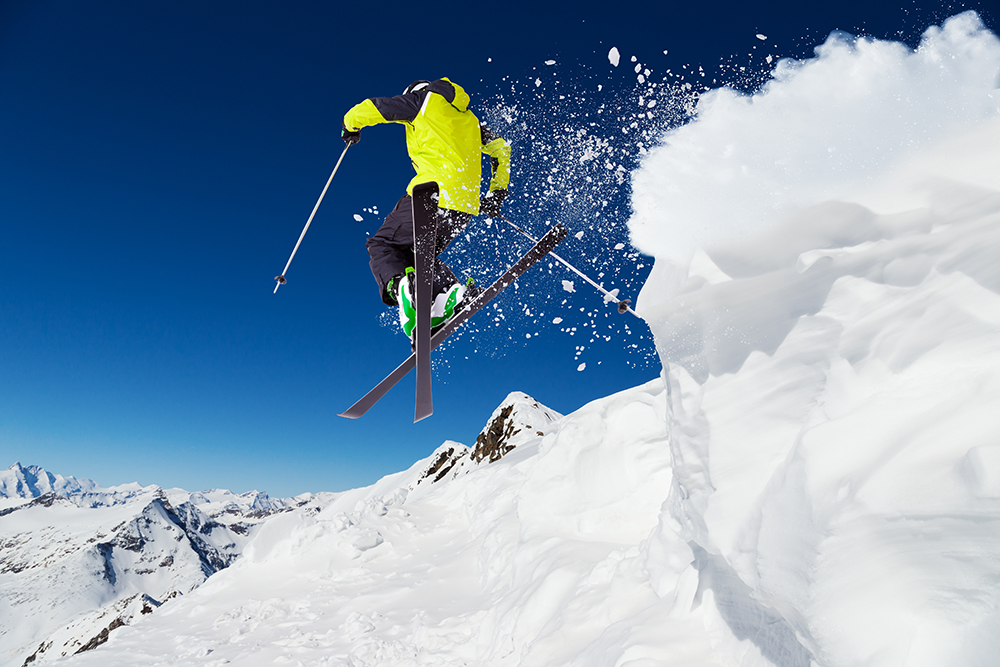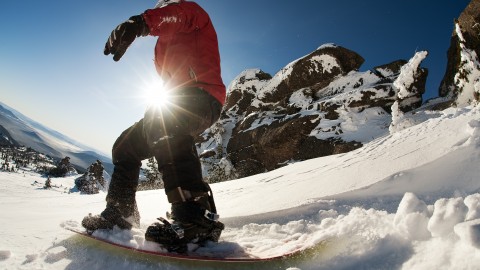Ski season is upon us and our patients are excited to hit the slopes (and we’re excited, tool!). Whether or not you are recovering from an injury, we’re here to help your body stay strong and ski injury free throughout the season. Shred on!
Gain superhero strength
Although it may seem some of us are born with superhero powers, everyone can proactively train their ankles, hips and knees and take care of their bodies throughout the day to lessen the potential of skiing injuries when flying down the slopes.
You don’t have to be the Plastic Man, but… improving flexibility in your ankles, knees and hips will allow for proper shock absorption during your trips down the slopes. Good thoracic rotation will help with providing good mobility for balance and keeping your trunk in the right positions. In our last post, we talked about two great exercises to strengthen your ankles to avoid ski injury.
Even Superman… take breaks! Sitting on the lifts often isn’t enough time to recover after your runs. If you find yourself out of breath or light headed, take a moment to recover before you get back on the lift.
Our spidey senses tell us… lodge food isn’t the most nutritious. Pay attention to the types of food and liquids you supply your body with. Eat a solid breakfast packed with protein and healthy carbohydrates and have snacks throughout the day to refuel after a long day of boarding. If you plan on partaking in Apres-ski, remember to keep yourself hydrated to prevent morning aches (and hangovers).
Recover after a heroic day on the slopes
Snowboarding and skiing can take a lot out of you. Especially if you’re prone to having to fight off trees and other obstacles. Here are 4 ways to help you recuperate to get you back on the slopes the very next day.
- Stretching: Stretching post-snowboarding or skiing can decrease lactic acid build up and can keep your joints and tissue mobile. Even a quick 10-minute stretch can do wonders for you the next day.
- Perform active recovery: Easy gentle mobility exercises such as air squats or yoga movements can flush your system from unwanted toxins that can build up after a long day of boarding.
- Treat yourself: Sometimes foam rollers aren’t enough to relieve those sore muscles. Soft tissue mobilization from massages not only feels great but helps with circulation while promoting a relaxing recovery. Your physical therapist can help you prevent excessive stiffness and soreness to speed up recovery.
- Catch some Zs: Proper rest after a long day of boarding and between days of activity allows for your body to recover from the physical demands you place on it while up on the slopes.
To ensure your body is ready for ski season, get a flexibility and functional mobility assessment prior to your trip to help prevent ski injuries while up on the slopes. We hope you enjoy this snow season and we look forward to keeping you healthy before and after your mountain trips!


